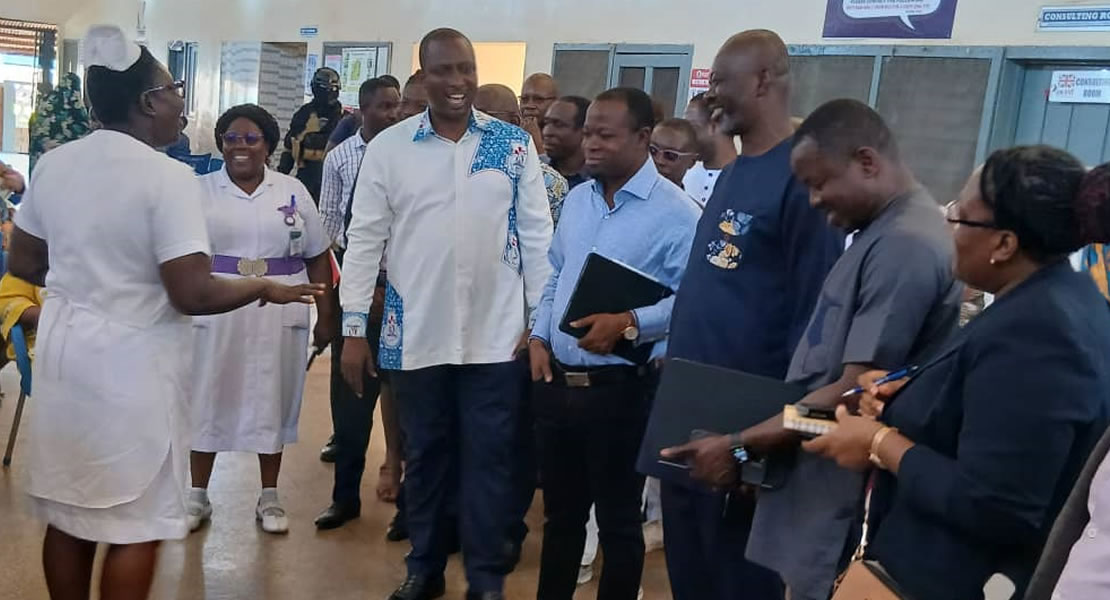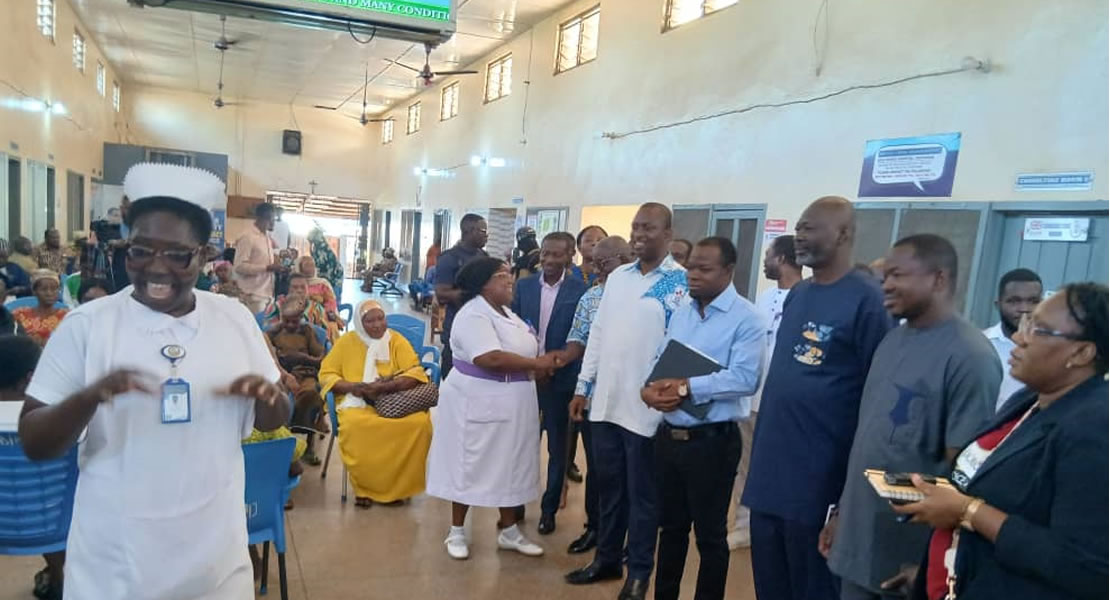
The Holy Family Catholic Hospital in Techiman has been lauded as a vital national healthcare asset during a visit by the Parliamentary Select Committee on Health, which formed part of a nationwide oversight tour of health facilities.
The visit brought together high-profile health sector leaders, including Hon. Dr. Sebastian Sandaare and Dr. Peter Yeboah, Executive Director of the Christian Health Association of Ghana (CHAG), who emphasized the need for equitable resource distribution, stronger partnerships, and urgent infrastructure support.
During the tour, Dr. Sandaare commended the hospital’s professionalism, cleanliness, and the dedication of its staff.
“We were impressed with what we observed—the staff are cheerful, hardworking, and committed to serving the people,” he noted.
However, he also expressed concern about the facility’s critical challenges, including limited space, human resource shortages, and the need for essential medical equipment such as MRI machines, patient monitors, and mammograms.
“We believe that with the kind of services they render—almost like a teaching hospital—they deserve more support. This hospital is a referral center for the Upper West, Upper East, Northern Region, and beyond. It is central to regional healthcare delivery,” Dr. Sandaare said.
Holy Family Hospital is a national asset Dr. Peter Yeboah echoed these sentiments, declaring the Holy Family Hospital a “national asset” and highlighting its strategic location at Ghana’s geographical crossroads.
“You can’t go to Upper West or Upper East without passing through Techiman. This hospital provides a public good and must be treated as such,” he remarked.
He shared a revealing anecdote about a former Health Minister who, after receiving anonymous care at the hospital, pledged to support its transformation into a teaching facility due to the outstanding treatment he received.
Both leaders stressed the importance of a unified, inclusive approach to health sector reform.
Dr. Yeboah called for “equity and synergy,” noting that competition and duplication in the healthcare system must give way to collaboration and shared responsibility.
He said, “Health defies boundaries must move from silos to synergies—cooperation, not conflict; partnership beyond politics.”
On the policy front, Dr. Yeboah advocated for prompt reimbursement of National Health Insurance Scheme (NHIS) claims and the establishment of a fair economic tariff structure for health service providers.
“Delayed payments and illegal charges reflect deeper systemic gaps. Prompt reimbursements are essential to keeping facilities like this operational,” he said.
He also reminded the committee of CHAG’s longstanding role in NHIS development, including piloting the capitation scheme and supporting reforms aimed at making the system more efficient and accountable.
Addressing the rise in Road Traffic Emergencies (RTEs), Dr. Sandaare warned that accidents are quickly becoming a leading cause of hospital admissions and fatalities. He called for increased public education on road safety and for hospitals to be equipped with advanced diagnostic tools.
“Education is the first step, but after accidents occur, hospitals must be ready to diagnose and treat victims immediately,” he said.
Both Dr. Sandaare and Dr. Yeboah expressed hope that renewed leadership and commitment—particularly recalling former President John Mahama’s 2014 intervention in healthcare infrastructure—would pave the way for a new era of investment in facilities like the Holy Family Hospital.
Concluding the visit, Dr. Yeboah thanked Members of Parliament for their advocacy and described CHAG as a committed partner in achieving universal health coverage.
“This hospital—CHAG’s number one in output, impact, and innovation—will continue to partner with the government to strengthen our health system,” he affirmed.
Ghanamps.com